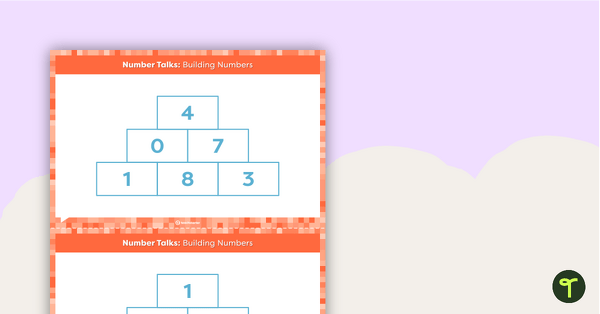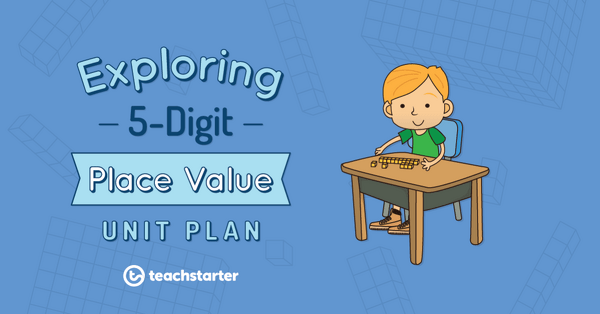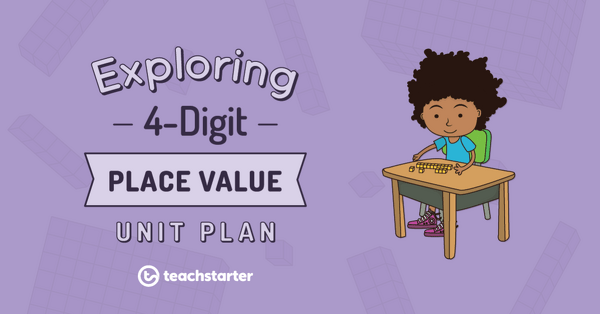Rounding Whole Numbers Teaching Resources
Make rounding whole numbers fun and engaging this school year with the help of printable worksheets, fun games, interactive activities and more teacher-created resources designed to teach students how to round to the nearest number.
Aligned with both TEKS and Common Core math, the resources in this collection were all designed by our expert math teachers with your lesson plans and your students in mind. That means you can spend less time creating resources about how to round numbers and more time doing what you really love — teaching!
Explore task cards, Google Slides templates and more ways to teach kids how to estimate, how to put their place value knowledge into practice and how to easily find the closest whole number using practical strategies instead of flashy math "tricks."
Are you new to teaching about rounding in math classes? Or maybe you're just looking for some handy tips and information? Read on for a primer from our teacher team, including a handy definition of round numbers to share with your students.
What Is a Round Number? A Kid-Friendly Definition
If you're teaching students how to round whole numbers, it helps to start by explaining the meaning of round numbers. Here's a handy definition you can use to introduce your lesson:
A round number is any number that is a multiple of 10 or ends in a zero. Round numbers are helpful when we are making estimations or performing math operations because they make calculations easier.
Examples of round numbers include 10, 20, 100 and 1,000. Each of these numbers is divisible by 10, and each one ends in a zero.
What Is Rounding a Number? A Kid-Friendly Definition
Once students know what a round number is, it's often easier to explain the meaning of rounding a number.
After all, this math strategy involves simplifying numbers to make them easier to work with.
Rounding a number means making a number simpler — sometimes making it bigger or smaller — by changing the value to the nearest round number.
For example, if we are rounding the number 38 to the nearest round number, we would change it to 40.
How to Round to the Nearest Whole Number
When we round numbers, we lean into our understanding of place value to figure out which number to round to. Sometimes, we round up, which means we choose a number that is higher in value than our starting number.
Sometimes we round down, which means we round to a number that is lower in value than our starting number.
Either way, we always need to look at the digit to the right of the place value we want to round to. If we want to round to the nearest ten, we look at the ones digit. If we want to round to the nearest hundred, we look at the digit in the tens place, and so on.

In this fun rounding activity, students draw lines between numbered dog and bones with numbers on them.
How to Tell When to Round Down
How do you know if you should be rounding down? This is fairly simple!
If the digit to the right of the place value we want to round to is 4 or less, we round the number down.
For example:
- If you want to round the number 114 to the nearest hundred, the answer will be 100. This is because we looked to 1 — the digit to the right of the hundreds place.
- If you want to round the number 23 to the nearest ten, the answer will be 23. In this case, we looked to 3 as it was the digit to the right of the tens place.
How to Tell When to Round Up
When does rounding numbers require us to increase the value of a number?
If the digit to the right of the place value we want to round to is 5 or greater, we round the number up.
- For example, if you were to round 27 to the nearest tens place, you would end up with 30. This is because 7 is the number to the right of the tens place, and it is greater than 5.
- Plus Plan

Number Talks - Building Numbers Task Cards
Build number sense skills with this set of 24 task cards.
- Plus Plan

Rounding Numbers to 10; 100; and 1,000
A 60-minute lesson in which students will round 5-digit numbers to the nearest 10, 100 and 1000.
- Plus Plan

Rounding Numbers to 10 and 100
A 60-minute lesson in which students will round 4-digit numbers to the nearest 10 and 100.